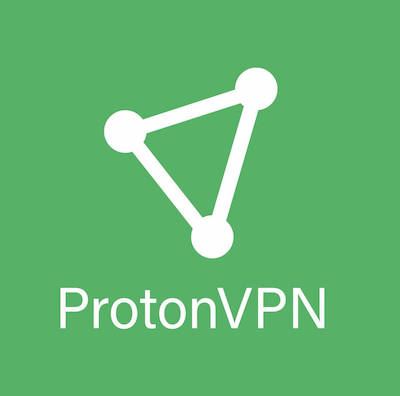 Proton introduced a new feature to the company's VPN (Virtual Private Network) this week. Best of all, it is even available free of charge (although the free version is missing a few things that are included in paid versions).
Proton introduced a new feature to the company's VPN (Virtual Private Network) this week. Best of all, it is even available free of charge (although the free version is missing a few things that are included in paid versions).
Also, Proton's free VPN is the only free VPN I would ever trust to not spy on its users, to not collect private information from its users, and to not contain malware (malevolent software). Free VPNs have a poor reputation for spying on their users; Proton is different. You can trust Proton.
I started with Proton's free VPN service, found I liked it so I paid for an upgrade, and have been using Proton's (paid) VPN for a some time and switched to the new version as soon as it became available this week. I have been impressed with it so far.
According to Proton's web site: "We created Proton VPN to protect the journalists and activists who use Proton Mail. Proton VPN breaks down the barriers of Internet censorship, allowing you to access any website or content." However, it was proven to be so useful for journalists and activists, the company soon expanded its use to include everyone on the internet who is concerned about maintaining their privacy.
Again quoting the Proton web site at: https://protonvpn.com/: "We believe privacy and security are fundamental human rights, so we also provide a free version of Proton VPN to the public. Unlike other free VPNs, there are no catches. We don't serve ads or secretly sell your browsing history. Proton VPN Free is subsidized by Proton VPN paid users. If you would like to support online privacy, please consider upgrading to a paid plan for faster speeds and more features.
"We believe that everyone has the right to online privacy, therefore we provide free VPN access to those who can't afford a paid plan.
"The Proton VPN free plan does not have a duration limit (you can use it as long as you want), and we do not sell your data unlike some other free VPN services."
Proton VPN has Free servers in 3 countries, available for Free users. The Free VPN servers offer medium speed.
Indeed, the primary need for any VPN is privacy. As a Swiss VPN provider, Proton cannot legally log user activity or share data with third parties. The company's anonymous VPN service enables Internet without surveillance.
Note: Switzerland has long been hailed as a bastion of security. Data security is held sacred in Switzerland, and Swiss privacy laws are just plain better than anywhere else in the world. In fact, security-minded companies — like pCloud and ProtonVPN - are also based in Switzerland.
I will write about pCloud some other time. It is another online service based in Switzerland that I use and am pleased with it.
There are three major laws regulating data protection and information privacy in Switzerland: Article 13 of the Swiss Constitution, the Federal Act on Data Protection (DPA) and the General Data Protection Regulation (GDPR). These laws force businesses to ask permission from their users whenever they need to store and process their personal data. Swiss companies in general are more secure than their U.S.-based counterparts, thanks to Switzerland’s strict laws governing the processing of personal data.
The driving force behind these privacy laws are required because of the Swiss Constitution. Switzerland is one of very few countries to have data processing regulations built into its constitution. Article 13 of the constitution provides several protections to Swiss citizens in regards to online communications, email and the processing of personal data. The article states, in part:
- Every person has the right to privacy in their private and family life and in their home, and in relation to their mail and telecommunications.
- Every person has the right to be protected against the misuse of their personal data.
Don't you wish that ALL internet companies were based in Switzerland?
The requirements of the Swiss Constitution are further explained in two sets of laws:
- The Swiss Federal Act on Data Protection (DPA)
- The General Data Protection Regulation (GDPR) - a European data protection law
Installation
Installing Proton's VPN was simplicity itself: Go to https://protonvpn.com/, click on "Create Free Account,"" and then click on the option you want: free, or select from any of several paid options.
Note: If you are new to Proton, I would suggest you first sign up for the free account. If, over the next few days, if you find that you like the service, I would suggest you read the various options for paid accounts and then choose one of those. Prices are modest: varying from $4.99/month (U.S.) to $9.99/month. The longer the length of your subscription, the cheaper the price.
If you select a paid service, Proton VPN operates over 1,000 servers in more than 60 countries around the world, so there will always be a VPN server nearby to provide you with a secure, fast connection. Users with a VPN Plus or Proton Unlimited plan can access the company's large and expanding network of high-speed (10 Gigabit per second) Plus servers.
Proton VPN supports 3 different VPN protocols: (1.) the older OpenVPN protocol used by most VPN providers, (2.) the newer WireGuard protocol that is becoming popular (it's faster and more secure), and (3.) a brand-new Stealth protocol, that can avoid detection and let you bypass internet censorship and VPN blocks.
Stealth is available only on Proton and is even available to free users. For now, you can use Stealth on Android, macOS, and iOS apps. (There is no Stealth capability yet on Windows or Linux, although Proton does plan to add those services soon.) I am using the Mac version on my desktop and laptop Macs, along with the Android version on my cell phone and on my tablet computers.)
Stealth uses obfuscation to hide your VPN connection from censors. The general idea is to make VPN traffic look like “normal” traffic — or common HTTPS connections. Stealth does this by using obfuscated TLS tunneling over TCP. This is different from most popular VPN protocols that typically use UDP, making them easier to detect and block. Without going into too much detail, Stealth also establishes VPN connections in a specific and unique way that avoids alerting internet filters.
In other words, not even your ISP (Internet Service Provider) will know you are using a VPN if you use Stealth. This is a major advantage for use in countries where local governments block VPNs, such as in China, Russia, many Arab countries, and quite a few others.
Proton also supports Tor Network in the Proton VPN. See https://protonvpn.com/support/tor-vpn/ for the details
Summation
I have found the Proton VPN to be easy to use, has more than 1,800 servers in more than 64 countries, and the paid version supports high speeds (up to 10 gigabits per second). I signed up for the $4.99/month (U.S.) option and am pleased that I am now surfing the web securely.
By the way, I am not paid by anyone to publish this article. I do not use affiliate links. I am simply a satisfied Proton VPN user and I wish to tell my online friends about it.
This article only "scratches the surface" in describing all the functions of Proton VPN. You can read a lot more at https://protonvpn.com.
While there, also take a look at Proton Mail, Proton Drive, and Proton Calendar. They are great products also. And highly secure.
 Latest News Articles
Latest News Articles If you do not see a Plus Sign that is labeled "Add comment," you will need to upgrade to either a (FREE) Standard Edition or a (paid) Plus Edition subscription
If you do not see a Plus Sign that is labeled "Add comment," you will need to upgrade to either a (FREE) Standard Edition or a (paid) Plus Edition subscription